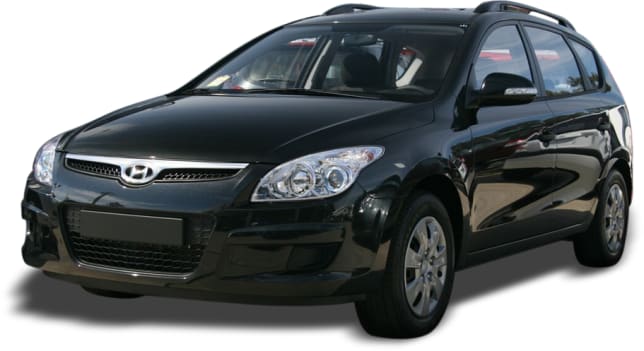
What's on this page
Hyundai I30 2009
This is what Ewan Kennedy liked most about this particular version of the Hyundai i30: Precise feel through the steering wheel, Good road grip
The 2009 Hyundai i30 carries a braked towing capacity of up to 1200 Kg, but check to ensure this applies to the configuration you're considering.
The Hyundai i30 is also known as the Hyundai Elantra GT in markets outside Australia.
Hyundai I30 2009 Reviews
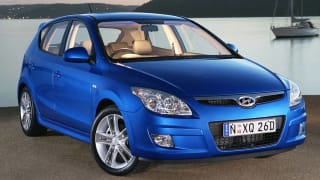
Used Hyundai i30 review: 2007-2015

Used Hyundai i30 review: 2007-2012
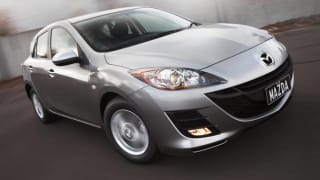
Budget choices for those who like to think small

Used Hyundai i30 review: 2007-2010

Used Hyundai i30 review: 2007-2009

Hyundai i30cw 2009 review
Hyundai I30 2009 News
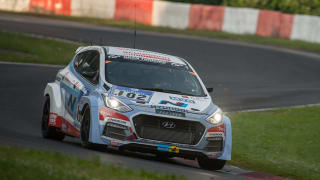
Hyundai N performance models one step closer after Nurburgring trial
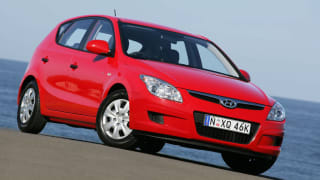
Hyundai i30 and Elantra recalled over potential power steering fault
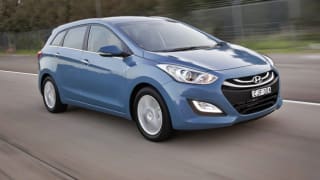
New Hyundai i30 Tourer wagon arrives

Hyundai i30 wagon gets European flavour
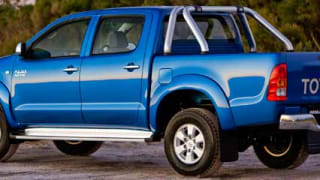
Car sales boom
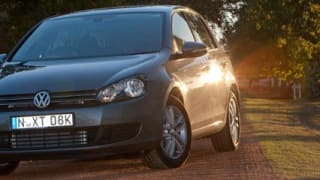
Golf is Carsguide Car of the Year

Hyundai i30 CW
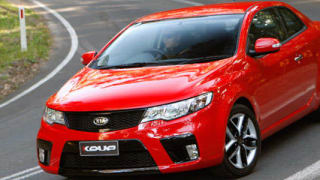
Kia tips product-led recovery
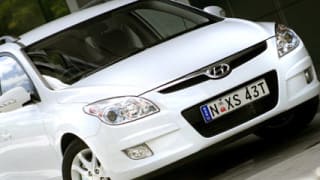
Korean cars outsell Aussie-made
Hyundai I30 2009 Price and Specs
Pricing guides

| Hyundai I30 Model | Body Type | Specs | Price from | Price to | |
|---|---|---|---|---|---|
| SLX | Hatchback | 2.0L ULP 4 SP AUTO | $5,610 | $7,920 | |
| SLX | Hatchback | 2.0L ULP 5 SP MAN | $4,950 | $7,260 | |
| SLX 1.6 Crdi | Hatchback | 1.6L Diesel 4 SP AUTO | $6,160 | $8,690 | |
| SLX 1.6 Crdi | Hatchback | 1.6L Diesel 5 SP MAN | $5,720 | $8,030 | |
| CW SLX 1.6 Crdi | Wagon | 1.6L Diesel 4 SP AUTO | $5,500 | $7,810 | |
| CW SLX 2.0 | Wagon | 2.0L ULP 4 SP AUTO | $5,940 | $8,360 | |
| CW Sportswagon 2.0 | Wagon | 2.0L ULP 4 SP AUTO | $5,500 | $7,810 | |
| CW SX 1.6 Crdi | Wagon | 1.6L Diesel 4 SP AUTO | $5,500 | $7,810 | |
Hyundai I30 2009 Q&As
Check out real-world situations relating to the Hyundai I30 2009 here, particularly what our experts have to say about them.
-
My 2009 Hyundai i30 is having trouble starting
A car that is difficult to start could be suffering from, literally, hundreds of different problems. You need to have the car electronically scanned to see if the on-board computer has logged any faults of glitches in the fuel or ignition system. That's the best way forward or you could find yourself replacing perfectly good components without any change in the car's behaviour.
And don't rule out basic stuff like a battery that seems fine but is struggling to turn the engine over as well as supply enough power for the ignition to work properly. Modern cars with electronically controlled major functions really don't like a battery that is slack and cold weather will often show that problem up.
Also, when you say you've checked the fuel filter, what do you mean? Did you replace it or simply do a visual inspection. You can't really tell by looking at a filter how gunked up it is inside, so while it all looks okay, it could still be a contributing factor in your starting problems. An accurate diagnosis will also be easier if the mechanic has more information to work with. So start taking notice of exactly what is happening. For instance, is the car more difficult to start hot or cold? Does leaving it overnight make a difference to trying to start it for the second time that day? Does the ambient temperature have an effect on starting difficulty? Are there any specific noises the engine makes when it becomes recalcitrant? Keep a diary of this stuff... it might save you money.
Show more -
Does the Hyundai i30 2009 model have just one reverse light?
This sounds like an odd question, but it’s actually not. Not all cars over the years have been fitted with two reversing lights and having just one was legally acceptable. From memory some Excels (and the early Toyota Prius in some markets and plenty of European cars) were sold here with both a single reversing light and a high-intensity fog-light set into the rear bumper. Australian drivers being unfamiliar with rear fog-lights, often left them turned on all the time, dazzling anybody following.
As well as reducing the cost-per-car, having a fog light and a reversing light that were interchangeable made building cars in both left and right-hand-drive form a little simpler (and cheaper) as the same bumper moulding could be used with the lights simply swapped side-to-side.
In any case, by 2009, the Hyundai Excel had grown a second reversing light to bring it into line with other mainstream cars being sold here. Hyundai Australia managed to dig me up a wiring diagram for the FD model Excel (2007 to 2011) which clearly shows the wiring loom to support two reversing lights.
Show more -
What car should I buy that is reliable and safe?
You’ve got a limited budget, which will determine the car you can buy. It will be a relatively old car, so buy one in the best condition you can find, with the lowest odometer reading, a good service history, and the best safety rating. Try a Mazda3, Toyota Corolla, Kia Rio, and Hyundai i30 from 2008/2009.
Show more -
Hyundai i30 2009: Does it have a timing chain or timing belt?
It has a timing belt.
Show more
Hyundai I30 2009 Dimensions
Dimensions for the 2009 Hyundai i30 are dependent on which body type is chosen. The maximum width and height is 1775mm x 1565mm and can vary on the basis of model.

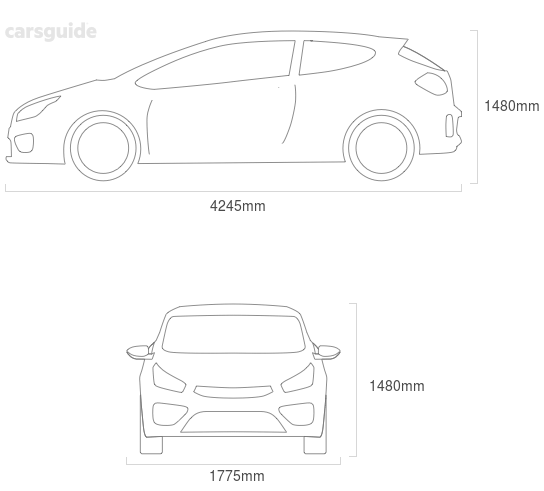
| Hyundai i30 Model | Body Type | Height x Width x Length | Ground Clearance | |
|---|---|---|---|---|
| SX | Hatchback | 1480x1775x4245 mm | 150 mm | |
| SX 1.6 Crdi | Hatchback | 1480x1775x4245 mm | 150 mm | |
| SLX | Hatchback | 1480x1775x4245 mm | 150 mm | |
| SLX 1.6 Crdi | Hatchback | 1480x1775x4245 mm | 150 mm | |
| CW SX 2.0 | Wagon | 1565x1775x4475 mm | 105 mm | |
| CW SX 1.6 Crdi | Wagon | 1565x1775x4475 mm | 105 mm | |
| CW SLX 2.0 | Wagon | 1565x1775x4475 mm | 105 mm | |
| CW Sportswagon 2.0 | Wagon | 1565x1775x4475 mm | 105 mm | |
Hyundai I30 2009 Fuel consumption
Fuel consumption for the 2009 Hyundai i30 is dependent on the type of engine, transmission, or model chosen. The Hyundai i30 currently offers fuel consumption from 4.7 to 7.7L/100km. The Hyundai i30 is available with the following fuel types: Diesel and ULP.
| Hyundai i30 Model | Body Type | Specs | Fuel Consumption | |
|---|---|---|---|---|
| SLX 1.6 Crdi | Hatchback | 1.6L,Diesel,4 SP AUTO | 6L/100km | |
| SLX | Hatchback | 2.0L,ULP,4 SP AUTO | 7.6L/100km | |
| CW SLX 1.6 Crdi | Wagon | 1.6L,Diesel,4 SP AUTO | 6L/100km | |
| CW SLX 2.0 | Wagon | 2.0L,ULP,4 SP AUTO | 7.7L/100km | |
Hyundai I30 2009 Wheel size
Wheel size for the 2009 Hyundai i30 will vary depending on model chosen, although keep in mind that many manufacturers offer alternate wheel sizes as options on many models.The wheel size available will alter the range of tyres available to be fitted. Standard wheel sizes on the Hyundai i30 vary from 15x5.5 inches to 17x7 inches.
| Hyundai i30 Model | Body Type | Front Tyre Size | Front Rim | Rear Tyre Size | Rear Rim | |
|---|---|---|---|---|---|---|
| SX | Hatchback | 195x65 R15 | 15x5.5 inches | 195x65 R15 | 15x5.5 inches | |
| SX 1.6 Crdi | Hatchback | 195x65 R15 | 15x5.5 inches | 195x65 R15 | 15x5.5 inches | |
| SLX | Hatchback | 205x55 R16 | 16x6 inches | 205x55 R16 | 16x6 inches | |
| SLX 1.6 Crdi | Hatchback | 205x55 R16 | 16x6 inches | 205x55 R16 | 16x6 inches | |
| CW SX 2.0 | Wagon | 195x165 R15 | 15x5.5 inches | 195x165 R15 | 15x5.5 inches | |
| CW SX 2.0 | Wagon | 195x65 R15 | 15x5.5 inches | 195x65 R15 | 15x5.5 inches | |
| CW SX 1.6 Crdi | Wagon | 195x65 R15 | 15x5.5 inches | 195x65 R15 | 15x5.5 inches | |
| CW SLX 2.0 | Wagon | 205x55 R16 | 16x6 inches | 205x55 R16 | 16x6 inches | |
Hyundai I30 2009 Towing capacity
The Hyundai i30 has maximum towing capacity of 1200kg. Some models also offer heavy-duty or towing option packs which can increase towing capacity, as well as options which can hamper towing capacity. Towing capacities can vary wildly on a large number of factors. These include engine, transmission, model, and options chosen. Always check with the manufacturer or in your vehicles handbook before attempting to tow anything.
| Hyundai i30 Model | Body Type | Specs | Braked Capacity | |
|---|---|---|---|---|
| SX | Hatchback | 2.0L,ULP,5 SP MAN | 1200kg | |
| SX | Hatchback | 2.0L,ULP,4 SP AUTO | 1200kg | |
| SX 1.6 Crdi | Hatchback | 1.6L,Diesel,5 SP MAN | 1200kg | |
| SLX | Hatchback | 2.0L,ULP,5 SP MAN | 1200kg | |
| CW SX 2.0 | Wagon | 2.0L,ULP,5 SP MAN | 1200kg | |
| CW SX 2.0 | Wagon | 2.0L,ULP,4 SP AUTO | 1200kg | |
| CW SX 1.6 Crdi | Wagon | 1.6L,Diesel,5 SP MAN | 1200kg | |
| CW SX 1.6 Crdi | Wagon | 1.6L,Diesel,4 SP AUTO | 1200kg | |

